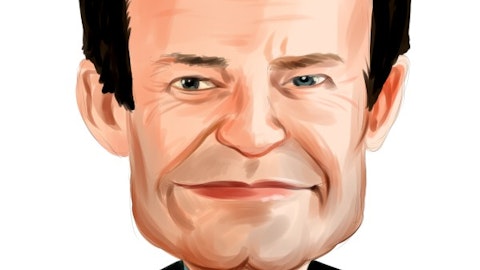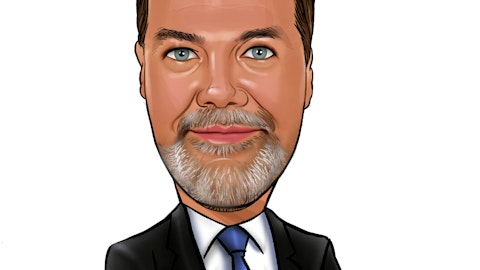Goehring & Rozencwajg Associates, an investment management firm, published its “Natural Resource Market Commentary” third-quarter 2021 investor letter – a copy of which can be downloaded here. In its letter, the fund talked about the energy crisis unfolding across Europe, Asia, and South America. The energy-heavy Goldman Sachs Commodity Index rose 5.2% on a total-return basis, while the Roger International Commodity Index, with its higher exposure to metals and agriculture, rose 6.2%. The S&P North American Natural Resources Sector Index, which is very heavily weighted to North American energy stocks, fell 2.5%. The S&P Global Natural Resource Index, which has significantly more metal and agricultural stock exposure, fell 3.1%. The broad market, as measured by the S&P 500 Stock Index, rose by 0.6%. You can take a look at the fund’s top 5 holdings to have an idea about their best picks for 2021.
Goehring & Rozencwajg Associates, in its Q3 2021 investor letter, mentioned Royal Dutch Shell plc (NYSE: RDS-A) and discussed its stance on the firm. Royal Dutch Shell plc is a The Hague, Netherlands-based multinational oil and gas company with a $162.8 billion market capitalization. RDS-A delivered a 19.32% return since the beginning of the year, while its 12-month returns are up by 20.01%. The stock closed at $41.93 per share on December 20, 2021.
Here is what Goehring & Rozencwajg Associates has to say about Royal Dutch Shell plc in its Q3 2021 investor letter:
“Royal Dutch Shell’s ESG challenges continue unabated. A Dutch court ruled in May that Royal Dutch Shell must cut its CO2 output by 45% by 2030 to align their policies with the Paris Climate Accord. In a statement issued after the verdict, a Shell spokesperson acknowledged that “urgent action is needed on climate change and the company is accelerating efforts to reduce emissions.” If the pressure from the Dutch court system was not enough, an activist shareholder has proposed breaking the company apart to address ESG concerns. On October 27th, Third Point Management announced the following.
“If Shell pursues this type of strategy it would probably lead to an acceleration of carbon dioxide reduction. […] Breaking Shell into two operating units would create a standalone legacy energy business (upstream, refining, and chemicals) that could slow capex beyond what is has already promised, sell assets, and prioritize return of cash to shareholder which can be reallocated into low-carbon areas of the market.”
Shell has already cut spending dramatically over the last decade. After having peaked at $39 bn in 2013, upstream capital spending fell to only $17 bn in 2020 – a drop of nearly 60%. Spending has barely recovered in the three quarters of 2021. A lack of spending has already impacted production. Proforma for the 2016 acquisition of BG Group, Shell’s total production has fallen 13% since capital spending peaked in 2013. These trends are accelerating: Shell’s production over the first nine months of 2021 have fallen 7% compared with the same period last year.
If Royal Dutch Shell’s upstream capital spending remains at today’s depressed levels, we estimate the company will only be able to replace 30% of production with new reserves and that production will fall 40% over the next nine years. If spending is further curtailed (as is being proposed), Shell’s oil and natural gas production would collapse – something that may have already started.”

Photo by Marc Rentschler on Unsplash
Based on our calculations, Royal Dutch Shell plc (NYSE: RDS-A) was not able to clinch a spot in our list of the 30 Most Popular Stocks Among Hedge Funds. RDS-A was in 33 hedge fund portfolios at the end of the third quarter of 2021, compared to 38 funds in the previous quarter. Royal Dutch Shell plc (NYSE: RDS) delivered a 2.34% return in the past 3 months.
Last year, we also shared another hedge fund’s views on RDS-A in another article. You can find more than 100 investor letters from hedge funds and prominent investors on our hedge fund investor letters 2021 Q3 page.
Disclosure: None. This article is originally published at Insider Monkey.




